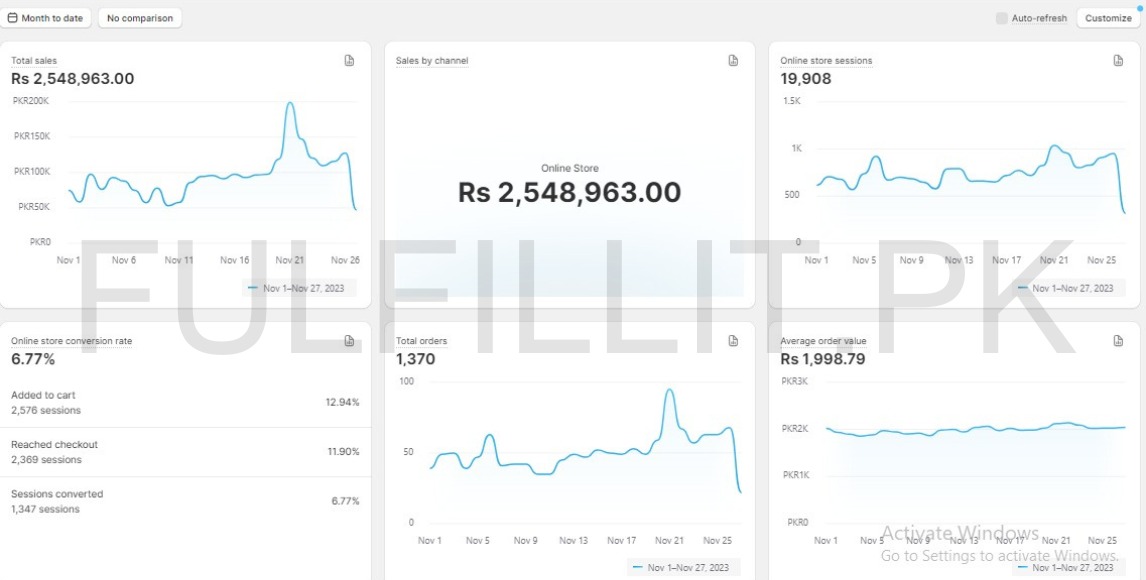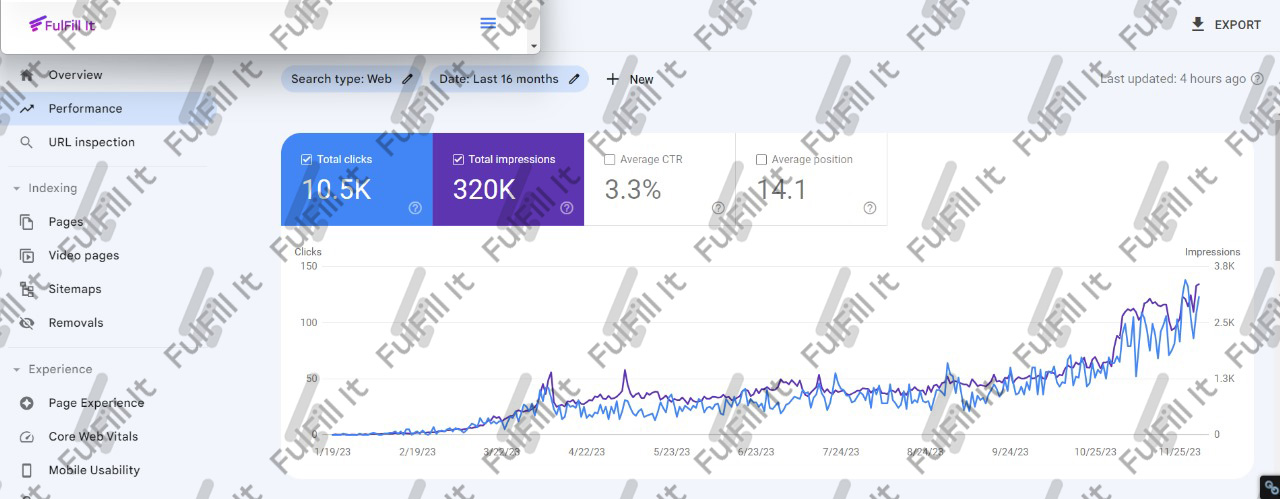In the world of digital dominion, on-page optimization stands as a beacon of strategic prowess, wielding the power to reshape your website’s destiny within search engine results. As we embark on this exploration of on-page optimization, we’ll navigate its profound importance in modern web marketing and arm you with insights to unlock unparalleled success. There are two major categories come into play: off-page SEO, which encompasses external factors often beyond your control, and on-page SEO, a central element that rests squarely in your hands.
When investigating the world of SEO enhancement, on-page strategies take the spotlight. In this article, we’ll explore the tones of on-page SEO, unravel its significance in the modern web marketing landscape, and equip you with insights to propel your website’s success.
Interpreting On-Page SEO: The Art of Optimization
In the world of search engine optimization, on-page SEO sets up a composition of methods that may significantly increase the organic traffic to your website and rocket its ranks in the SERPs (Search Engine Results Pages). The thorough optimization of a web page’s HTML is at the heart of on-page SEO, internal links, and metadata components, including meta titles, meta descriptions, and keyword density. This optimization is complemented by the deployment of superior, relevant material and captivating images. The combination of these sides results in an elevated webpage, shaped to perfection by the finesse of on-page SEO.
What is On-page optimization?
On-page optimization constitutes a meticulous choreography of a webpage’s core elements: from HTML intricacies to the labyrinthine network of internal links, and the crown jewels of metadata, including the meta titles, meta descriptions, and the rhythmic cadence of keyword density. This optimization ballet is further complemented by the harmonious ensemble of captivating content and mesmerizing images. This fusion crafts an elevated webpage, sculpted to perfection through the artistry of on-page optimization.
Conversely, off-page SEO is an ensemble of variables beyond the webmaster’s direct control. This encompassing phrase includes elements like external backlinks, social media interactions, brand mentions, and content shares, all using either direct or indirect influence over a website’s SERP standings.
Unlike off-page SEO, on-page SEO revolves around the very essence of the webpage itself. Every element within your website’s wall-hanging, from textual content and multimedia elements to HTML code and JavaScript intricacies, can sway its SEO fortunes. This holistic ensemble is often collectively referred to as “content,” a foundation that demands careful attention. Naturally, search engines place principal importance on this, making it the nucleus around which effective on-page SEO strategies revolve.
The Vital Reason: Why On-Page SEO Is Important
Search engines can look into the depths of your website and its coherent content thanks to on-page SEO. Search engines like Google constantly improve by analyzing user intent and modifying algorithms to align with it. Your website must thus keep pace with these algorithmic advancements.
Mastery of the latest optimization practices is imperative for harmonizing your website’s visible facets – be it engaging media, compelling content, or captivating images – with the intricate web of metadata and HTML structures that lie beneath the surface. This synergy enables search engines to accurately assess your site and orchestrate its ranking with precision.
Significance of On-page SEO
The significance of on-page SEO transcends the boundaries of business size, encompassing both titans and startups. This strategy stands tall among the crowd of digital marketing tactics due to its remarkable return on investment. As a matter of fact, on-page SEO boasts one of the most favorable ROIs across the digital marketing spectrum. This cost-effective approach yields sustained benefits, nurturing website growth and channeling passive traffic for years to come.
With nearly half of all website traffic originating from search engines, particularly giants like Google and Bing, a staggering 40% of online revenue is inextricably tied to search traffic. The supremacy of the first page of search results shines through, with the top-ranking spot monopolizing over 32% of keyword traffic and the entire first page raking in a staggering 91.5% of the clicks.
Navigating the On-Page SEO
As we traverse the landscape of on-page SEO, several pivotal elements beckon our attention: meta-data, content composition, and internal linking.
1. Meta Data Magic: Crafting Click-Worthy Links
Metadata, the hidden gem nestled within your HTML code, wields the power to captivate search engine users. Encompassing the title tag and meta description, these elements grace search results, offering a tantalizing preview of your pages. Ensuring that these metadata components are optimized with pertinent keywords and enthralling content is paramount, seamlessly synchronizing user and search engine expectations.
2. The Art of Content Crafting: A Harmonious Blend
The soul of on-page SEO thrives within your content. Meticulously crafting content that resonates with keywords laid out in your metadata fortifies the bridge between user intent and search engine algorithms. The mantra of “EAT-friendly” content endorsed by Google – Expert, Authoritative, Trustworthy – underscores the importance of high-quality content. The confluence of user needs and search engine expectations gives birth to content that stands as a beacon of relevance and authority.
3. Weaving the Web: Internal Linking’s Vital Role
A seamless user experience hinges upon a well-structured website. Intuitive navigation bars, footer links, and anchor links are the cornerstones of a user-friendly interface. This harmony, however, extends beyond mere user satisfaction; it extends a welcoming hand to search engine bots, facilitating their exploration of your website’s facets.
Google’s guiding light, encapsulated within its Webmaster Guidelines, underscores the value of a “clear conceptual page hierarchy.” Navigational ease and crawlable links not only enhance user satisfaction but also harmonize with search engine indexing, amplifying your on-page SEO endeavors.
4. User Intent: The North Star of On-Page SEO
Unlocking the potential of on-page SEO demands an intimate understanding of user intent. As users embark on their search engine journeys, their goals and aspirations guide their queries. Aligning your keywords with these intentions serves as the cornerstone of a robust on-page SEO strategy. Imagine a user inquiring about “Golden Retrievers.” Are they seeking adoption or information? Tailoring metadata to address these nuances empowers your SEO to strike chords with user aspirations.
5. Mobilizing Mobile Friendliness: An Imperative
The digital landscape has embraced mobility, rendering mobile friendliness an imperative rather than a luxury. Your website’s design must extend an embracing hand to all platforms, from mobile devices to desktops. This harmonious dance between versatility and user-friendliness extends a resounding message to search engines. Mobile-responsive designs ascend the SERP ladder, reaping the rewards of accessibility and user satisfaction.
6. Safeguarding Cyber Sanctums: Site Security’s Relevance
The digital realm’s security mantle is underscored by the HTTP protocol. This badge of security is more than symbolic; it has become an indispensable criterion for search engine ranking algorithms. With Google raising the banner of secure websites since 2014, site security is a non-negotiable facet of on-page SEO. Elevating your site’s security not only ensures user trust but also resonates with search engines, orchestrating a harmonious ranking ascent.
7. Elevating User Experience: Design Dynamics
The tapestry of on-page SEO is woven from not only technical intricacies but also user-centric design elements. The speed of site navigation, intuitive layout structures, and captivating design aesthetics collectively shape the user experience. Bolstering these aspects resonates with search engines, earmarking your website as a haven of user satisfaction. An enhancement in user experience mirrors a parallel surge in SEO prowess.
The Path Forward: Your On-Page SEO Journey
Elevating your website’s stature within the labyrinth of SERPs demands a symphony of strategies orchestrated through the brushstrokes of on-page optimization. The tapestry of optimization elements – from the refinement of metadata to the composition of compelling content, from alignment with user intent to the crescendo of mobile-friendliness – unfurls the path forward. On-page optimization isn’t merely a strategy; it’s an ongoing odyssey of evolution, a journey that harmonizes user needs with the algorithmic symphony of search engines.
Partnering with Fulfillit
As the curtain of on-page optimization rises, it’s paramount to note that Fulfillit.pk is your guiding light through this dynamic landscape. Fulfillit specializes in not only on-page optimization but also extends its expertise to off-page SEO and technical SEO. If you’re eager to harness the power of on-page optimization and embark on a journey of heightened visibility and search engine success, look no further. Experience the unparalleled realm of on-page optimization prowess with Fulfillit’s expertise. Your voyage to SEO excellence begins now. Click here to embrace the transformative power of on-page optimization with Fulfillit.
What is On-Page SEO?
On-Page SEO (Search Engine Optimization) refers to the practice of optimizing individual web pages on a website to rank higher in search engines and attract more relevant traffic. This involves optimizing both the content and HTML source code of the page.
Why is On-Page SEO important?
On-Page SEO is crucial for increasing your site’s visibility on search engines like Google, Bing, and Yahoo. Well-optimized pages are more easily understood by search engine crawlers, which helps in accurate indexing and ranking. This ultimately leads to higher web traffic and potential conversion rates.
How does On-Page SEO differ from Off-Page SEO?
On-Page SEO focuses on elements within your website, such as keywords, meta descriptions, and content quality. Off-Page SEO, on the other hand, refers to actions taken outside of your website, like backlinks, social signals, and other external factors that could affect your site’s visibility.
What are the key elements of On-Page SEO?
The key elements include:
Keyword research and placement
High-quality, original content
Meta descriptions and titles
Proper URL structure
Internal and external linking
Mobile-friendliness
Fast load time
User experience (UX) factors like layout and navigation
Does On-Page SEO affect mobile rankings?
Yes, search engines like Google have separate algorithms for mobile search. A mobile-friendly design is crucial for better rankings in mobile search. Page speed and mobile responsiveness are significant factors in On-Page SEO for mobile rankings.








